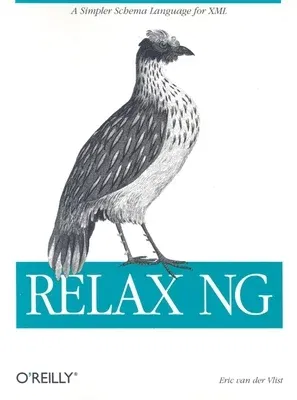As developers know, the beauty of XML is that it is extensible, even to
the point that you can invent new elements and attributes as you write
XML documents. Then, however, you need to define your changes so that
applications will be able to make sense of them and this is where XML
schema languages come into play. RELAX NG (pronounced relaxing), the
Regular Language Description for XML Core--New Generation is quickly
gaining momentum as an alternative to other schema languages. Designed
to solve a variety of common problems raised in the creation and sharing
of XML vocabularies, RELAX NG is less complex than The W3C's XML Schema
Recommendation and much more powerful and flexible than DTDs.RELAX NG is
a grammar-based schema language that's both easy to learn for schema
creators and easy to implement for software developers In RELAX NG,
developers are introduced to this unique language and will learn a
no-nonsense method for creating XML schemas. This book offers a
clear-cut explanation of RELAX NG that enables intermediate and advanced
XML developers to focus on XML document structures and content rather
than battle the intricacies of yet another convoluted standard.RELAX
NG covers the following topics in depth:
- Introduction to RELAX NG
- Building RELAX NG schemas using XML syntax
- Building RELAX NG schemas using compact syntax, an alternative non-XML
syntax
- Flattening schemas to limit depth and provide reusability
- Using external datatype libraries with RELAX NG
- W3C XML Schema regular expressions
- Writing extensible schemas
- Annotating schemas
- Generating schemas form different sources
- Determinism and datatype assignment
and much more.If you're looking for a schema language that's easy to use
and won't leave you in a labyrinth of obscure limitations, RELAX NG is
the language you should be using. And only O'Reilly's RELAX NG gives
you the straightforward information and everything else you'll need to
take advantage of this powerful and intelligible language.

